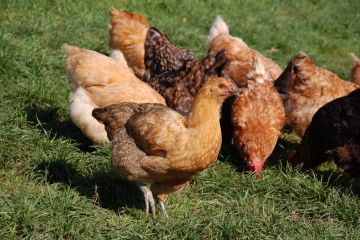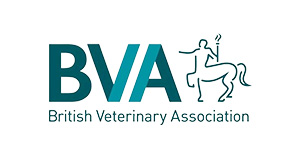Keeping Chickens as Pets: Essential Tips for Beginners
Published on: Nov 24, 2016
Chickens can make great pets as well as providing eggs. A small flock of 2 to 10 can easily be kept in even a small garden providing they are not specifically prohibited (as may apply to new housing estates). Providing they have a safe place to nest at night & a secure area to potter around to allow normal behaviour such as pecking and scratching, they are happy. Hens are also relatively quiet and do not need a cockerel to lay eggs although the eggs will be infertile.
Ex commercial laying hens are ideal in that they often still have a number of years left in them and are still laying eggs. They have the added bonus that you are giving them a happy retirement once their commercial life is over. They are, however, shorter lived than traditional breeds and bantams mainly because they have been bred to be high yielding for a relatively short time.
If you want birds from a young age or of a particular breed then choose a breeder who has been recommended to you or, if restocking, you have used before. Buying poultry from markets or mixing birds from different sources significantly increases the risk of bringing infections of different types on to your premises. Mixing birds from different groups can transfer infections from one group (who may have immunity to that infection) to the other group who may then become ill. Even the stress of travelling & a new home can cause a flare up of disease which has lain dormant for months or years. If you do have to source birds from different sites ensure that you quarantine them carefully for at least 2 weeks before mixing them with your existing birds.
General care of free range birds includes regular worming with an effective licensed product and monitoring and treating external parasites as needed. Lice are common and ‘over the counter’ products are available to control them – note that large louse infestations can occur in birds which are sick for some other reason and that lots of external parasites can reduce a birds immune response to other infections. Red mite, which lives in the birds housing, can be more resistant so more aggressive control is needed – left uncontrolled birds can die of anaemia.
Poultry are prone to infections from a number of viruses which can have varying effects on the bird. For instance chickens can get infected with several different respiratory viruses and other organisms which can cause sneezing, sore eyes and coughing. These can also cause scarring internally and may later on progress to cause egg peritonitis where the egg does not form normally and sets up an infection inside the abdomen.
Birds are typically prey animals so have an in built desire to appear well even if they are ill so that a predator does not think they are an easy target. Unfortunately, even in the relative safety of your back garden, they will continue this behaviour which makes it difficult to notice when they are sick. Once a bird looks ill they have often been ill for a while. Picking them up regularly and monitoring their weight & noticing any small changes in behaviour can help identify early signs of disease.

keeping chickens as pets | benefits of pet chickens | raising chickens in backyard | ex commercial laying hens | buying chickens | chicken coop | chicken health | Shepton and Wells Vets
Caring for your pet as we do our own

At Shepton and Wells Vets, we understand what your pets mean to you, and so our Pets team aim to care for each and every one of them as we would do our own.
We care about your pet
Our primary focus is keeping them fit, happy and healthy with comprehensive and effective preventative healthcare, advice and treatment.
We care about you
We aim to communicate clearly and honestly with you, and discuss different treatment options so that you can make the right informed choices for you and your pet.
We care about clinical excellence
We take pride in providing a high level of medical and surgical care, working together as a team to do the very best we can for your pet.











